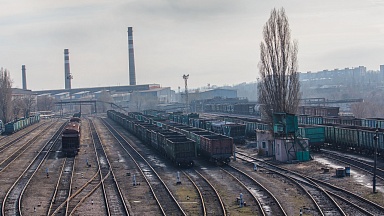Abdulla Apripov recalled that during the SCO Summit in July, Uzbek President Shavkat Mirziyoyev called the SCO region a space of enormous economic opportunities, as well as a platform and resource base for the development of all countries of the association.
The Uzbek Prime Minister then proposed strengthening transport and communications links in the SCO region.
He noted the active promotion of projects for the development of north-south and east-west highways. According to Abdulla Aripov, the start of construction of the China-Kyrgyzstan-Uzbekistan railway is particularly important.
«We are in favour of increasing multimodal transport along this route, as well as through Afghanistan to the ports of Iran and Pakistan,» said Prime Minister Aripov.
The implementation of such projects will reduce transport costs for countries in the region by a third.
The Uzbek government also proposed the development of a unified map of transport links between SCO member states.
Abdulla Aripov expressed hope that these issues would be discussed at the first SCO Transport Forum in Tashkent on 1 November.

